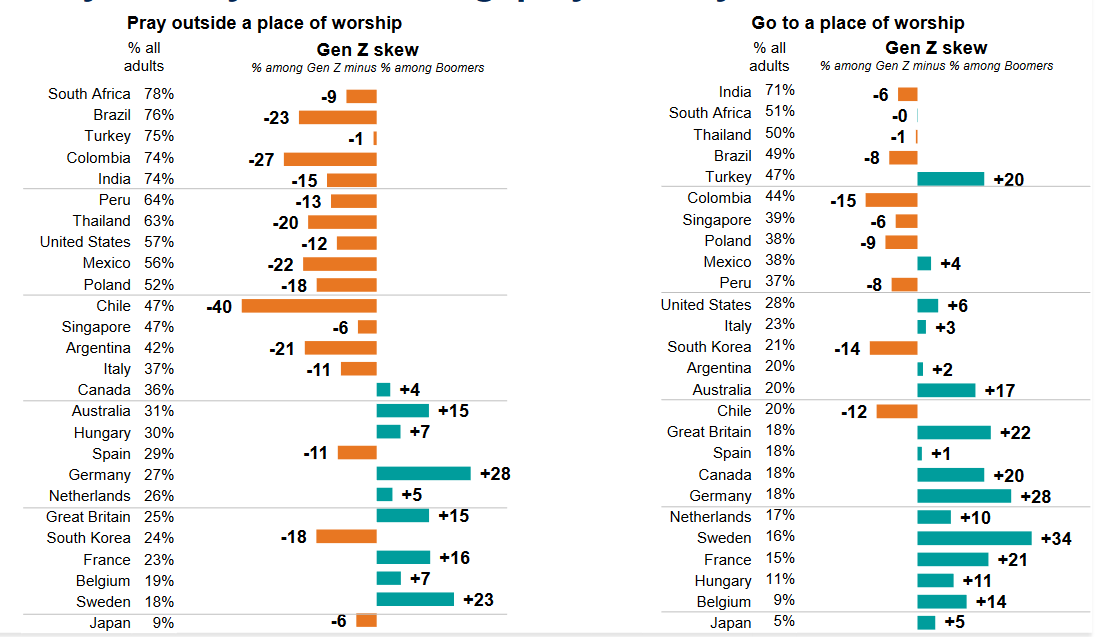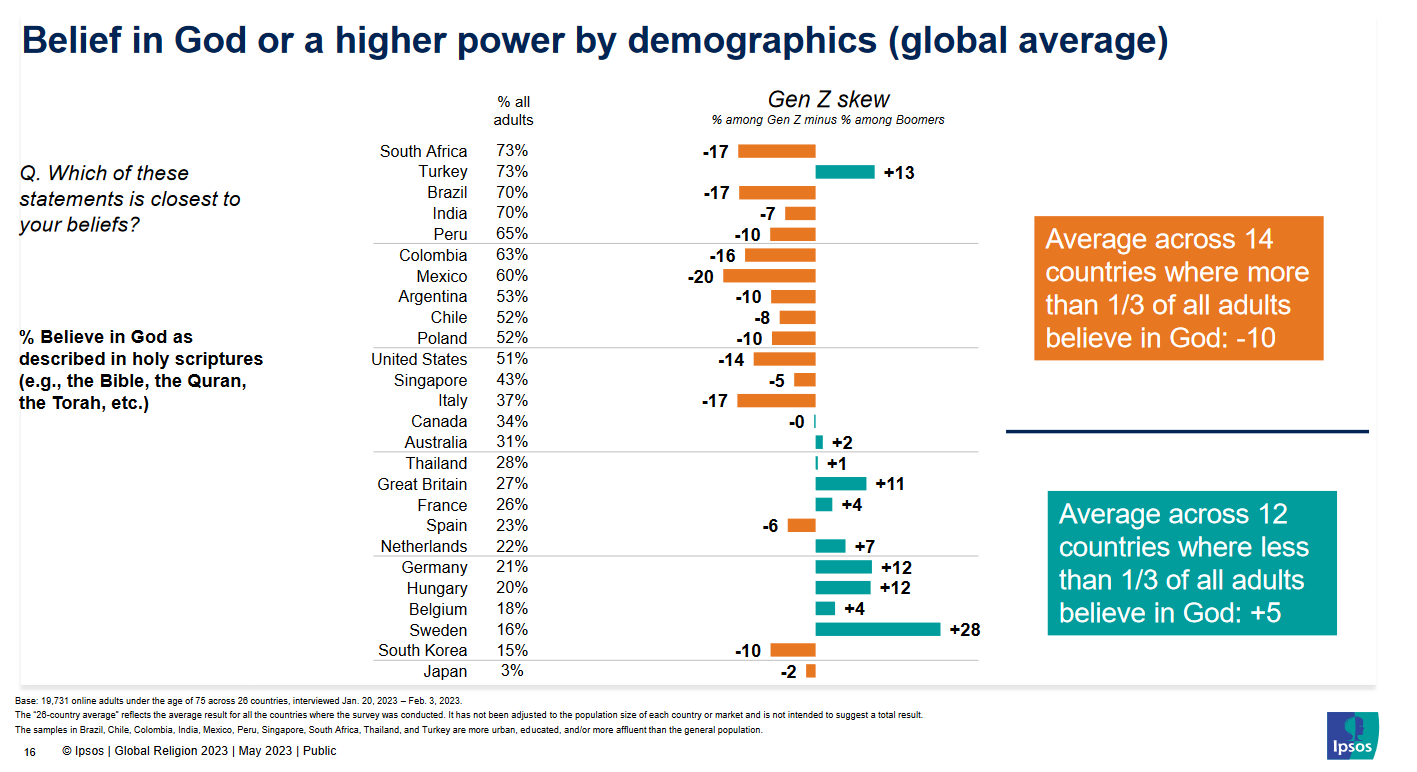In Europe, Gen Zers pray and go to church more than their grandparents
A survey shows that while most Europeans do not believe in God, those born after 1997 in Sweden, Germany, France, Great Britain, the Netherlands and Hungary have more faith.
Ipsos · BRUSSELS · 26 JULY 2023 · 12:41 CET

The Gen Zers (those born after 1997) live their spirituality more than Boomers (those born between 1946 and 1964) in countries where secularism has become the norm.
This is one of the findings of a survey conducted by Ipsos among 19,000 people in 26 countries (see list in the grey box below) in the first half of 2023, with a special focus on Europe.
“In countries where religious practice is high, older adults tend to engage in it more than the young, while in countries where religious practice is low, young people tend to have higher engagement”, the report found.
More prayer and church attendance among Gen Zers
The European countries where most people do not pray are Sweden and Belgium (less than 2 in 10). In contrast, the Roman Catholic majority countries Poland (52%) and Italy (37%) have the highest numbers of people who say they pray.
Church attendance among the surveyed countries in Europe is highest in Italy (23%) and Spain (18%) and lowest in Hungary (11%) and Belgium (9%).

Data and graph: Ipsos Global Religion 2023 survey. But the generation gap between Boomers and Gen Zers is surprising. People under the age of 26 pray more than those in the Boomer generation in Germany (+28%), Sweden (+23%), France (+16%) and Great Britain (+15%). This interest in prayer among young people in Germany was already detected in other surveys.
The faith factor among young people is even clearer when it comes to church attendance. The gap between Gen Zers who go to church and the generation of their grandparents is significant in Sweden (+34%), Germany (+28%), Great Britain (+22%), France (+21%), Belgium (+14%), Hungary (+11%), Netherlands (+10%). In Southern Europe, the change is smaller among young people but still in the positive (Italy +3%, Spain +1%), according to the Ipsos survey.
Belief in God or higher power
When adults in the European countries surveyed are asked about their belief in God or in a higher power, only in Poland (64%) and Italy (60%) a majority say they are believers.
Hungary, Spain, Netherlands, Germany, Sweden, France, and Great Britain, all have proportions of believers in the minority (somewhere between 40% and 46%). It is more, according to Ipsos, in Germany, Belgium and Sweden, there are more people who believe in the existence of an undefined higher power or spirit than in the God described in the Scriptures.

But here again, Gen Zers in Europe belief in God more than their grandparents. The difference is of a 28% in Sweden, 12% in Germany and Hungary, 11% in Great Britain, 7% in Netherlands, and 4% in France and Belgium.
The Roman Catholic majority countries Italy (-17%), Poland (-10%) and Spain (-6%), are the only in which Gen Zers believe even less than the older generations.
Protestant and evangelical faith among the young
The Ipsos survey also contrasted the beliefs of Boomers and Gen Zers in relation to their religious affiliation.
While Gen Zers identify much less as Protestant or Evangelical in countries with a long Protestant tradition like Sweden (-24%), Great Britain (-19%), and the Netherlands (-9%), there is a reverse trend in countries such as Hungary (+9% more Protestant or evangelical Christians among the youngest), France (+5%), Poland (+3%) and Spain (+2%).
Those born after 1997 who identify as “atheist, agnostic or just spiritual” have increased when compared to Boomers in Italy (+21%), Belgium and Poland (12%). But the trend is different in more secularised European countries, where the number of atheists and agnostics is lower among Gen Zers than in the generation of their grandparents in Sweden (-18%), Germany (-16%), and Hungary and Great Britain (both -3%).
What countries were surveyed?
11 of the countries included in Ipsos the “Global Religion 2023” survey are in Europe (Italy, Poland, Turkey, Spain, Hungary, Sweden, Netherlands, Great Britain, France, Belgium and Germany).
5 countries surveyed are in Asia (India, Thailand, Singapore, Japan, South Korea), 6 in Latin America (Mexico, Argentina, Chile, Peru, Colombia, Brazil), 2 in North America (United States and Canada), 1 in Africa (South Africa) and 1 in Oceania (Australia).
Although these countries are to a certain degree representative of trends in their region, the answers do not represent the full picture of trends in faith and religion in the whole world.
Published in: Evangelical Focus - europe - In Europe, Gen Zers pray and go to church more than their grandparents
